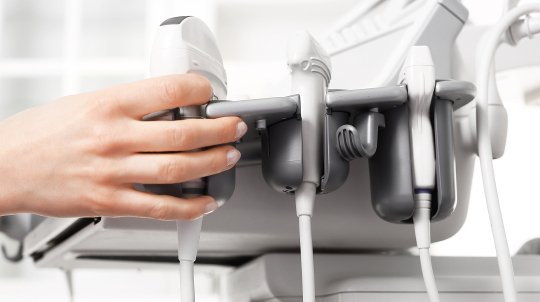Ultrasound can determine whether soft tissue formations are benign or malignant and find out the extent of the spread of neoplasms. Ultrasound of soft tissues allows you to detect:
- hematomas (blood accumulations in tissues)
- lipomas (neoplasms from adipose tissue)
- atheromas (sebaceous gland cysts)
- hernias (umbilical, inguinal)
The procedure is also in demand in plastic surgery and cosmetology. Ultrasound of the soft tissues of the anterior abdominal wall is often prescribed to patients with diastasis (divergence of the rectus abdominis muscles) after childbirth to assess the condition of the muscles before performing endoscopic surgery to suture the abdominal muscles.
Ultrasound of facial soft tissues is a routine procedure after injections of fillers (various fillers, including hyaluronic acid). To correct the injection result, the doctor needs information about the exact location of the filler in the subcutaneous tissue, and ultrasound diagnostics allows to determine the amount of filler in each test area. The duration of ultrasound diagnostics of the skin, subcutaneous tissue and muscles is 10 minutes.
Indications and contraindications for soft tissue ultrasound
You can come to an ultrasound examination of soft tissues on your own initiative or at the direction of a doctor – usually a surgeon. According to Evgenia Smirenskaya, ultrasonographer with 17 years of experience, who sees patiens at the Odessa VIRTUS Institute office on Bunin Street, the procedure is rarely urgent and is usually performed on a scheduled basis. Among the indications for soft tissue ultrasound, the following ones can be singled out:
- the presence of a palpable formation
- a long-term non-healing injury
- prolonged or systematic local painful sensations in the subcutaneous tissue, skin, and muscles
- congenital vascular formations (hemangiomas)
A relative contraindication to soft tissue ultrasound is open wounds.













 20473
20473  3 min.
3 min.








